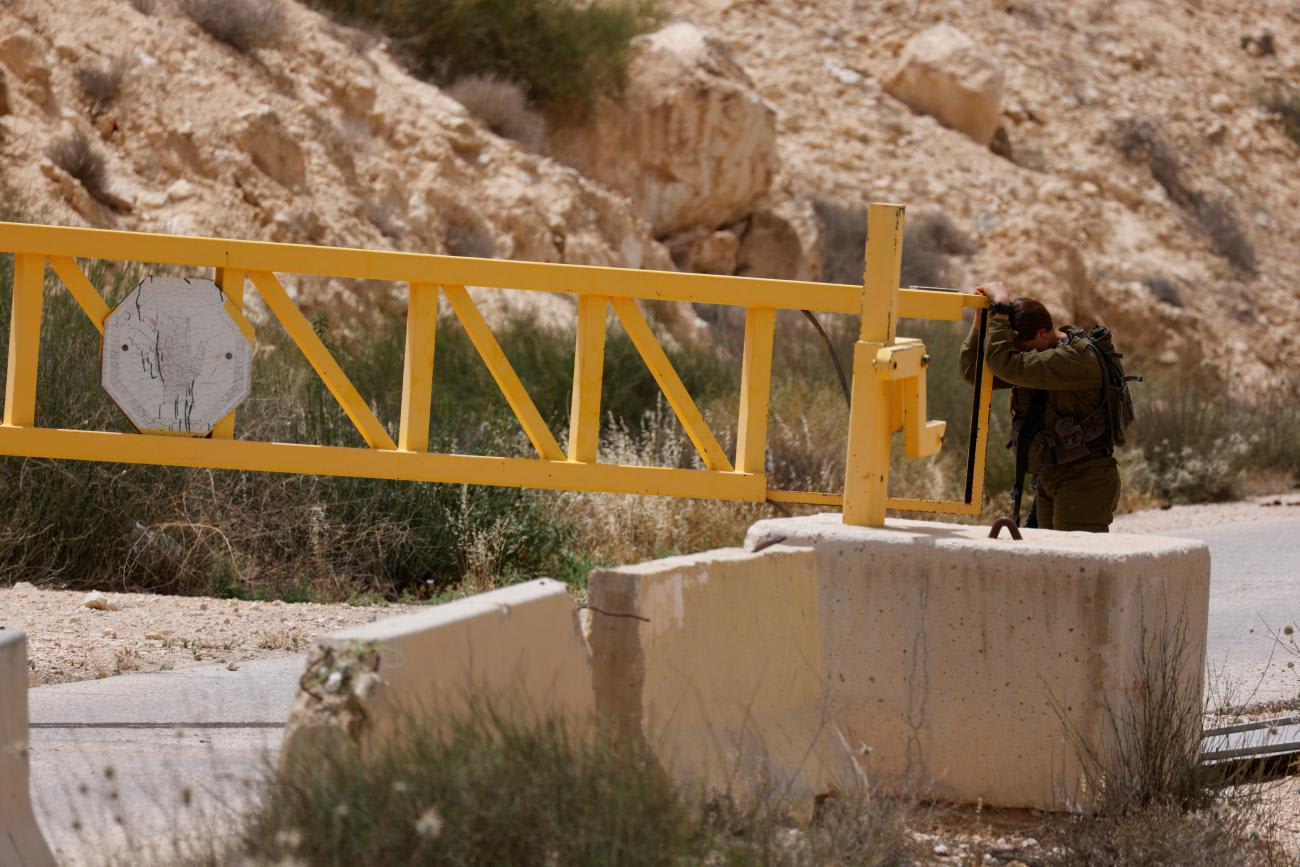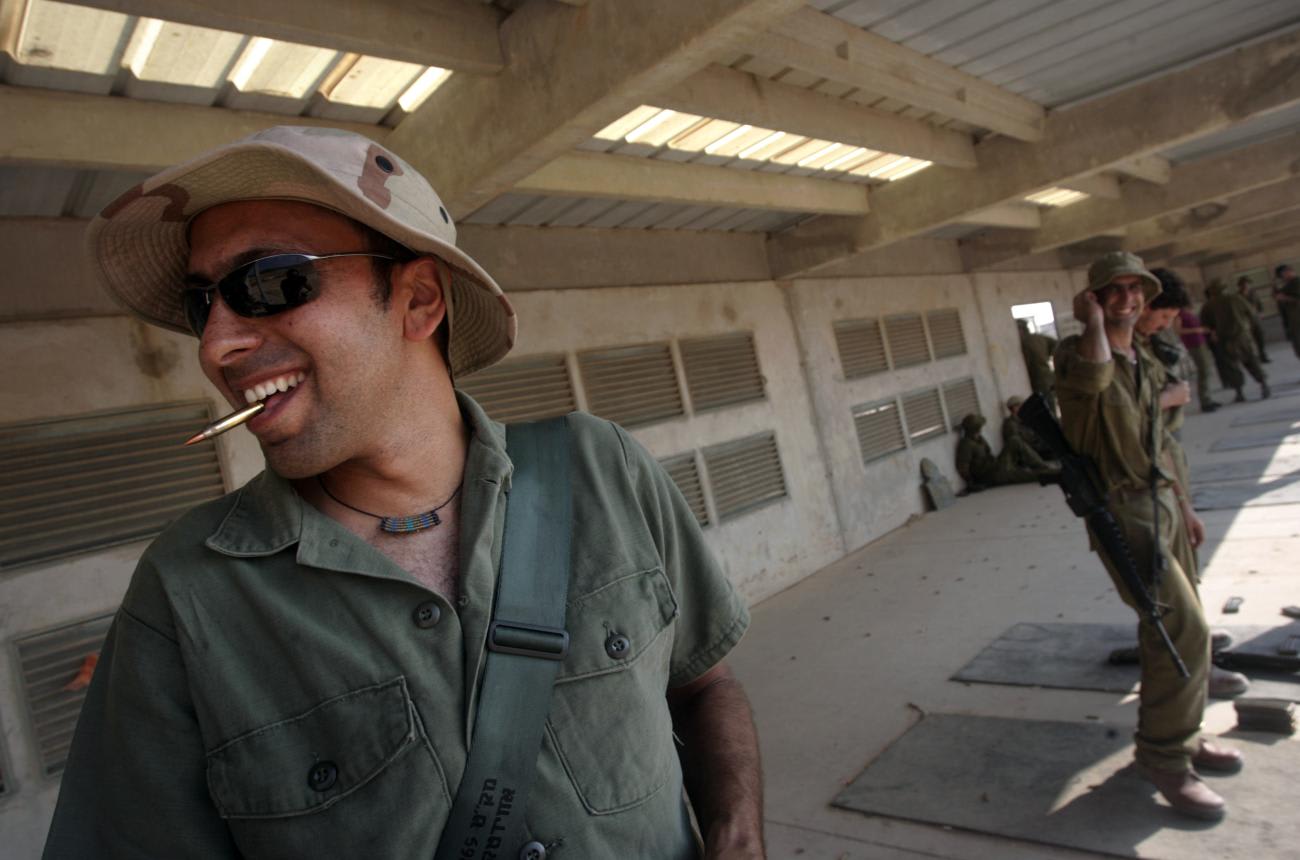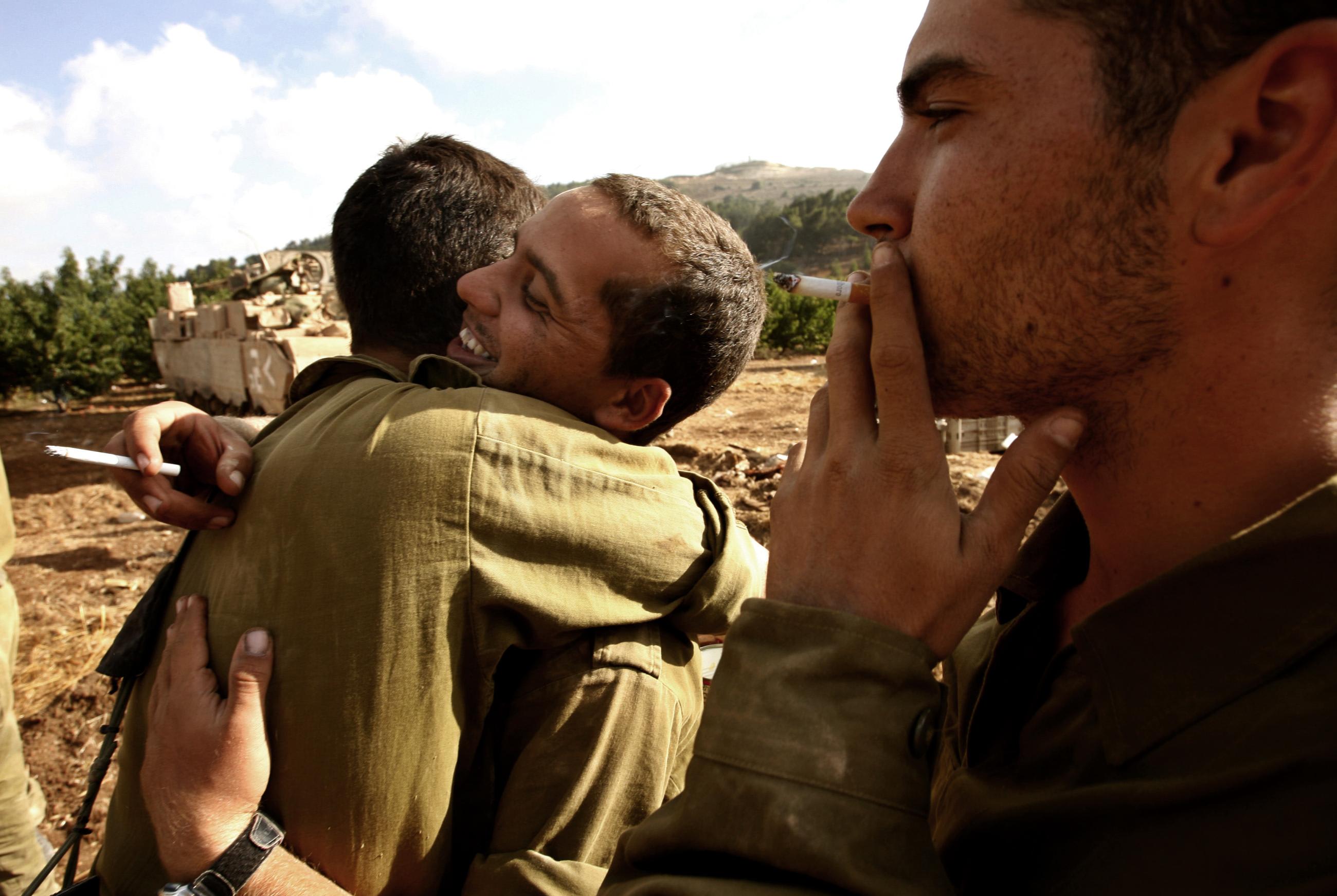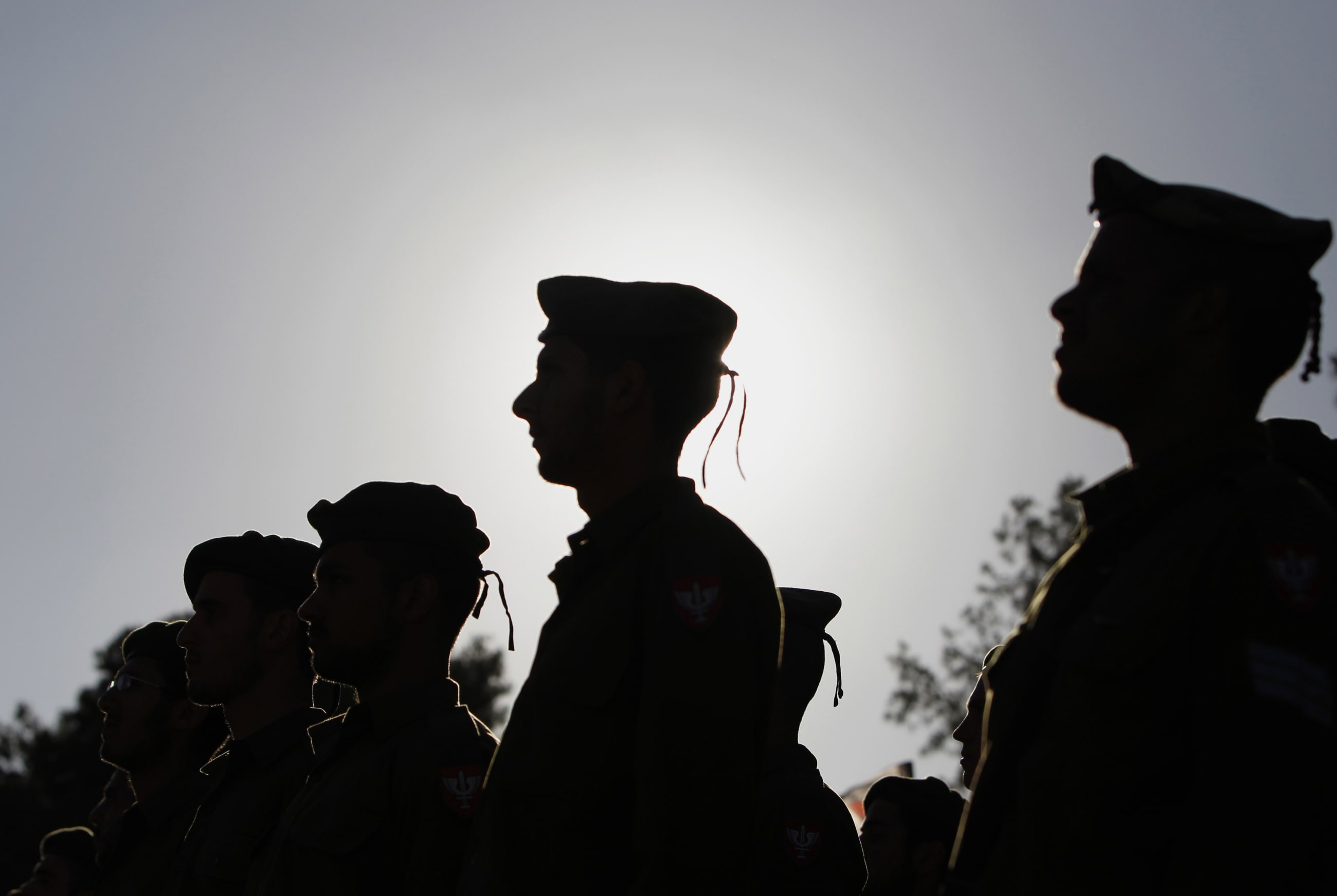In 2021, the U.S. Army reported the suicide rate among active-duty troops was higher than it had been in nearly a century. That risk trails soldiers even after they leave service: U.S. veterans are 57 percent more likely to die by suicide than comparable adults.
But the U.S. armed forces aren't unique in struggling with suicide — and other militaries have found measures to tackle the problem. In Israel, where military service is compulsory and nearly half of those age eighteen to twenty-one enlist, the suicide rate in the early 2000s was similarly high — and military clinicians did something decisive to address it.
One of them was Eyal Fruchter, a flight surgeon in the Israeli Defense Force who did a residency in psychiatry and ultimately rose to be the chief psychiatrist of the Israeli military, with the rank of colonel. Another was Leah Shelef, who spent two decades in the military as a mental health officer and since retirement has continued her work as a therapist and a researcher.
They each spoke with Think Global Health about the actions Israel took and the implications what they did could have for other militaries and suicide prevention writ large.
□ □ □ □ □ □ □ □ □ □ □ □ □ □ □
Think Global Health: How did you get involved in thinking about suicide?
Eyal Fruchter: We started working on suicide prevention programs in 2005, which was quite a bad year for suicides in the military. Everybody accepted it as a force majeure: the attitude was "something bad happens, and we must try to keep it in mind, but we can't do a lot to prevent it."
Israel's suicide rate was very high—between thirty-five and forty-five deaths per year
Leah Shelef: The suicide rate was very high—between thirty-five and forty-five deaths per year. That is a lot in Israel, a country of eight million people. Thus families who lost children to suicide were very angry with the military. How is it possible that we gave you a healthy soldier and he came back in a body bag and we need to bury him?
Eyal Fruchter: We started telling the commanders that we could prevent it. We convinced the head of the army to say that it's not a force majeure and that we need to fight it. That was a green light for us to build a suicide prevention program.
Think Global Health: What were the most important components?
Eyal Fruchter: Any suicide prevention program starts with understanding how you can eliminate weapon availability. We know that from many places in the world—from the Golden Gate Bridge, from Switzerland and their weapons, from England and their attitude toward weapons. Whenever you reduce availability—surprise, surprise!—the suicide rate drops.
It's typical to think that if you want to kill yourself, you will kill yourself. But if you go to the Golden Gate Bridge, and it is shut down . . . nobody goes to the television tower at the end of the bridge and jumps. They just don't do that. It reduced California's suicide rate. So we know that suicide is a preventable death, especially at young ages. Military ages are classic for suicide.
Think Global Health: What opportunities did you identify to restrict access to lethal means?
Eyal Fruchter: In the Israeli military, you go home on the weekend — every weekend or every other weekend — and regardless of your role, everyone has to take their guns home with them. I was training to be a medic. Whenever I went out for a Saturday, for a weekend, I had to take my weapon with me.

Leah Shelef: I remember twenty, even fifteen years ago, that all the soldiers in my unit in the Air Force carried guns. Chefs, drivers, people with positions that didn't require guns.
As a researcher, I took all our soldiers and I started to compare those who kill themselves and those who survive. All I began to understand what the risk factors for suicide were, for example, for a male versus female, a combat soldier versus one not exposed to combat, those who carry guns and those who don't.
Eyal Fruchter: We looked at the statistics, and we found that quite a few soldiers committed suicide on Saturdays with their own weapons. They broke up with their girlfriend, they went to drink in a pub with their friends, and they saw their girlfriend with a new guy. They were a little bit drunk, so they were uninhibited. And they went home and had a weapon, right there. We wanted to prevent that, so we want people not to be with weapons all the time.
Think Global Health: Was their pushback on this policy change?
Eyal Fruchter: The main argument against it within the military was that soldiers needed to have their weapons to prevent suicide-bomber attacks. At that time, it was the end of the big wave of the suicide bombers, so it was something to deal with. They said, "if soldiers have weapons, they can prevent some of them."
We said, first of all, these are not the guys we want to kill terrorists in the middle of a crowded Israeli street. They would probably shoot more innocent bystanders than terrorists.
What ended up helping us was the big wave of weapon thefts at the time. A lot of people stole weapons from the houses of soldiers, or the soldiers sold their weapons and reported them stolen. We managed to convince the chief of the army that fewer weapons means fewer problems.
The main argument against it within the military was that soldiers needed to have their weapons to prevent suicide-bomber attacks
Eyal Fruchter
Think Global Health: People were pretty compliant with the new rules?
Eyal Fruchter: Yes. Instead of going out to a weekend vacation with a heavy bag in which you also had to carry your weapon, and make sure that you hid the gun and ammunition in different parts of your home — everybody was very happy not to carry that.
Leah Shelef: No one resisted this regulation. The cultural difference between Israel and the United States is big, starting with the Second Amendment. Violence happens in Israel sometimes — but still, most people do not carry. For example, my husband is military, ex combat. He does not carry a gun in dangerous parts of Israel. That's a big difference between America and Israel. Because it's not part of our identity even though we are more exposed to danger.
Eyal Fruchter: It was totally not political. This is the important thing. It was army policy and that's it. Nobody really cared about the political aspect.
At the beginning, in 2005, you could see a lot of people with weapons everywhere. Then, all of a sudden, the number of weapons in the streets dropped tremendously. This reduced the suicide rate in the military by about 30 percent. This alone.
Before the program started in 2005, the relative risk was 2.5 times higher risk for suicide in the military. After we initiated the program, the risk dropped to 0.8. It remains there today. Since then, it's actually been protective in terms of suicide prevention to be in the military.
Think Global Health: Were there other significant components of the suicide prevention program?
Eyal Fruchter: Another pillar of the program was psychological education. We made every soldier a gatekeeper for his friends. Everyone was trained how to recognize someone who is not himself and how to offer help.

We sent more mental health officers into the field level. We have in every brigade at least one mental health officer. In basic training, they have their own mental health officer. Because we understood that when the mental health officer ate lunch with you, slept with you in the barracks, trained with you in the field, the greater the chance somebody would go to them and say, "Hey, my friend just left his girlfriend and he seems to me a little bit depressed." Because they know him, and he is not this shrink from far away. Before the program, we found that the mental health system knew about fewer than 20 percent of those who committed suicide. Since the program got under way, the system knows about 55 percent of them. So we're in a better position.
The third pillar was how you investigate and learn from each and every suicide death. Typically, it took two and a half years for the military to investigate. This is of course totally not actionable. You couldn't learn. So for each suicide, we built a special team to investigate. This team learns but never accuses anyone, they just learn so that everyone will talk with them much more freely. They have to give their observations to the higher commander of the brigade after forty-five days and to the head of the manpower in the military after three months. It is crucial to learn quickly and to meet with sufficiently high-ranked officers to make decisions.
Leah Shelef: My son is in the Navy, and yesterday his new commander called me and introduced himself: "I am your son's commander. I want you to have my number. I want you to know that I'm here." They sometimes come to our home. It increases connectedness, cohesion, which has a strong connection to suicide. Our deployment is not the same as in the American military. The citizen remains more connected.
Think Global Health: What do you see is the impact of this beyond the immediate Israeli military?
Eyal Fruchter: Because of its success, Israel was able to build a national program for suicide prevention. Some of the military's programs were copied to civilian society. Like the gatekeepers, and suicide means restriction. So in Israel, it did have an impact, yes. Outside Israel, I don't know.
Think Global Health: Do you think applications are possible in the United States, in which military service members and veterans also experience high rates of suicide?
Eyal Fruchter: I think the main problem with the United States is the Second Amendment and people loving the freedom to carry a weapons. I spoke at least three times with [former director of the U.S. National Institutes of Mental Health] Thomas Insel about what I would do in the U.S. Army if I wanted to lower the extremely high suicide rate since Afghanistan and Iraq. I tried to convince him to eliminate the need to carry weapons in two big bases. He said it wouldn't work. He didn't think he was influential enough for that.

EDITOR'S NOTE: This conversation was conducted in two separate interviews via Zoom, which have been edited for length and clarity.
In the United States, if you or someone you know is in an emotional crisis, reach out to the National Suicide & Crisis Lifeline by dialing or texting 988.












